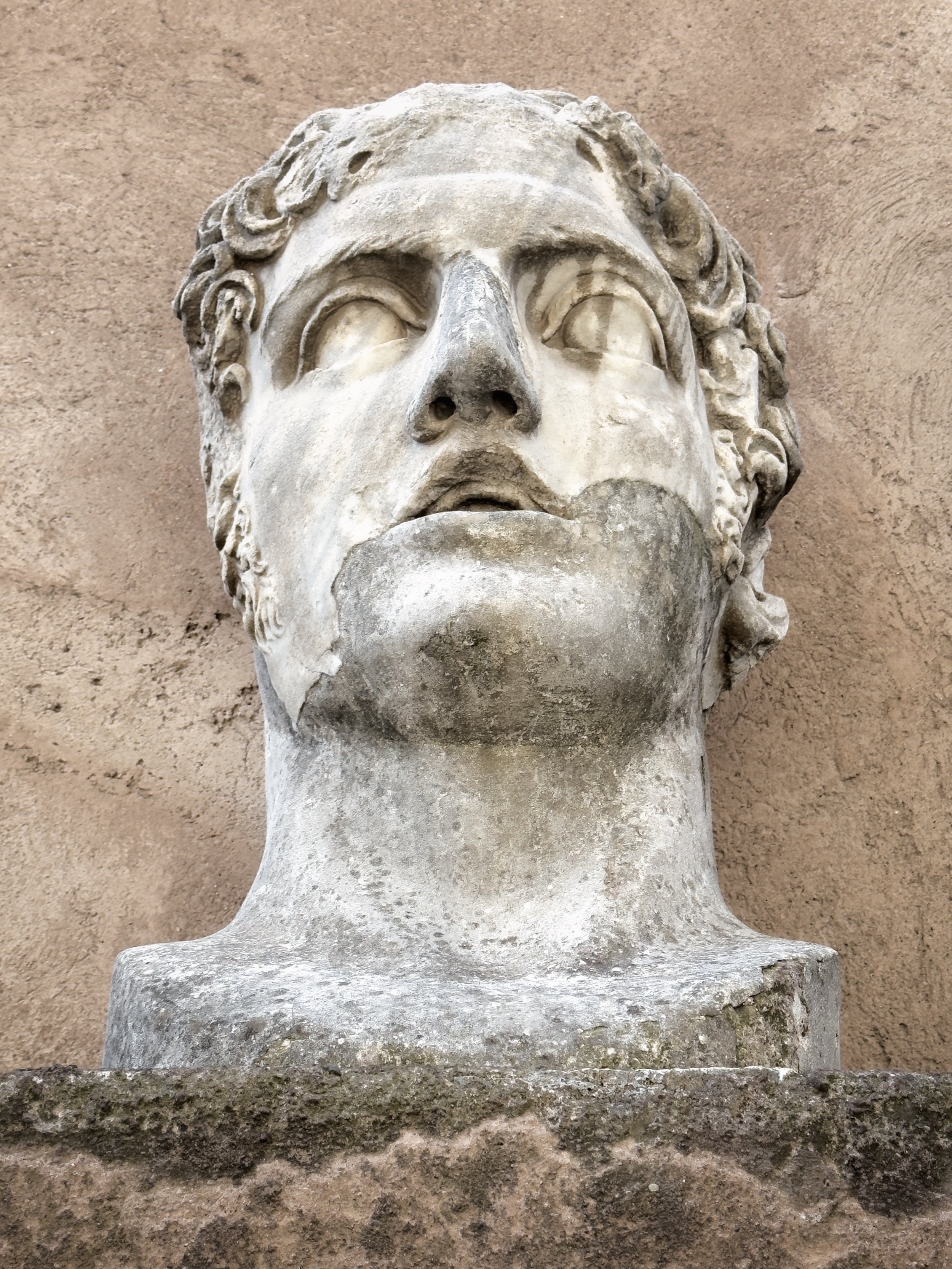ABOUT
What do you want to be when you grow up?
My favorite photo I took on my trip to Rome in October 2024. It was atop a ledge at Hadrian’s Mausoleum (currently known as Castel Sant’Angelo). I don’t know who it is or even if it’s from the classical period, though I suspect it’s from late in that period. Regardless, it speaks to me of that time - weathered but enduring, mouth agape with wonder, eyes wide open and wide open to see what lies ahead.
Once Covid lockdown began in early 2020, I needed something to fill the time. I soon discovered Mike Duncan’s excellent “History of Rome” podcast. I’d given ancient Rome some consideration before, but he brought its story to life in a way that captivated me like few other topics ever have. I was insatiable from that point. Since then, I’ve listened to at least a dozen podcasts about Rome, seen about every YouTube video on the topic and read countless articles and over 100 books on this fascinating, vast period in world history. And I’ve barely scratched the surface.
After I finished college many years ago, I found myself in the entertainment industry. I worked hard and paid the rent, and while the jobs themselves could be fulfilling at times, I never felt passionate about what I was doing. It’s now 2024 and I’m 54 years old. My whole life, I’ve never been able to answer the question, “what do you want to be when you grow up?”
With Rome, however, I’ve found my passion and finally know my answer: a historian. This blog is a very early attempt to start myself on a path that certainly includes more school, more reading, more travel to Rome (hopefully); possibly a podcast and a YouTube channel, maybe a graphic novel and Broadway musical (hey - who knows?). Whatever form that takes, I ultimately want more fulfilling engagement with folks who lived centuries ago and still shape our world today.
The posts will span the entire history of Rome, from its mythic origins in 753 BC to the fall of the Western Empire in 476 AD, and may include some on the Byzantine Era, during which whose inhabitants, despite being based in Constantinople, considered themselves resolutely Roman up to and well beyond the fall of that great city in 1453. I may also post some diversions that touch on Greek or ancient Mesopotamian civilizations, each of which had their influence on Rome.
Thank you for joining me on this journey. I hope some of my passion comes through. I trust you’ll let me know what you think on the Contact page.
— Rich Cole
All images on the site are my own, from the public domain, or have been properly licensed.
Dates are reflected by the traditional BC/AD designations, rather than BCE/CE. While I understand the desire to remove a Judeo-Christian bias, the fact remains that we still reckon the dates from Jesus’ birth, so I struggle to see the point in changing something so familiar to so many.


